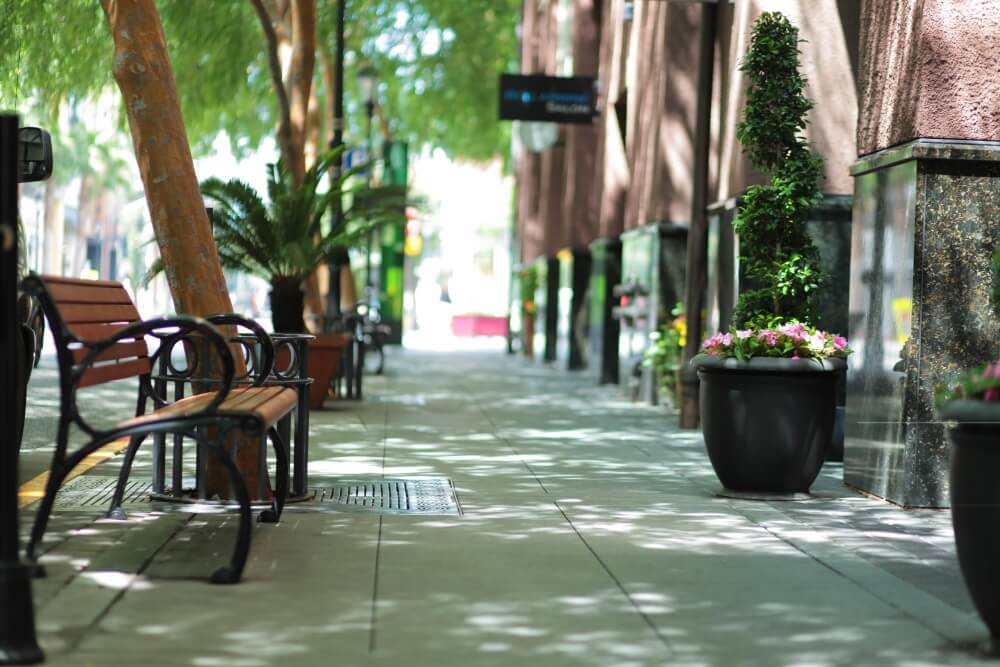Burden of Sidewalk Repair Falls on Denver Residents
In August 2018, the city of Denver’s Neighborhood Sidewalk Repair Program (NSRP) went live, adding weight to the burden of sidewalk repair that already falls on the city’s residents. The program’s mission is to repair the damaged sidewalks that are widespread throughout Denver, utilizing a host of flagstone suppliers and contractors to get the work done.
A fund of $4 million has been allocated to the city for the program’s initial costs and financial assistance provisions such as discount/extended payment plans. Financial assistance will depend on the number of residents in a home as well as family income.
The first region of focus, designated as “Region 1” per the NSRP, includes the areas of Capitol Hill, Cheesman Park, City Park, Congress Park, Speer, Country Club and Cherry Creek. Property owners residing in these areas will be notified by city officials if their sidewalks require repairs, and will be provided the requirements, estimated costs, and information regarding extended payment and affordability programs for those who qualify.
Owners will be given 45 days to hire their own contractors, after which the city contractor will perform the work and provide an invoice, with a “case-by-case” basis in effect for special circumstances. If the owner does not pay, a lien will be placed on the home until it is sold, at which time payment will be required. Flagstone sidewalks, which are particularly popular in the aforementioned Region 1 of the city, will need to be lifted with the foundation smoothed out, and if unable to be put back down will need to be replaced with colored concrete.
The criteria required to merit repairs is somewhat subjective, however there are a few “concrete” rules: if a slab is separated from an adjoining slab by ¾ inch or more, or if the sidewalk has a pitch of 5% or more, it must be fixed. More extensive damages may require a full replacement, however most problem areas should be fixable via mudjacking, grinding, and patching.
Aside from Region 1, there are an additional 10 regions scheduled for analysis and repair by Denver Public Works. Such regions are chosen based on grouping neighborhoods into relatively comparable areas based on community feedback. Regions will be addressed one at a time.
The structural state of Denver’s sidewalks has been an ongoing issue for decades, with one 2017 review finding that 40 percent of the city’s sidewalks did not meet the standards of the Americans with Disabilities Act, which defines the minimum walkway safety standards for disabled and elderly persons. The same report estimates that the cost of addressing all concrete problems in Denver would be between $800 million and $1.4 billion—or the entire general fund budget for the city.
Despite these unsettling statistics, all signs point to an increasing awareness of Denver’s sidewalk issues and the necessity to fix them. Only time will tell how well the Neighborhood Sidewalk Repair Program will do this. Fixing Denver’s concrete issues won’t be a walk in the park, but it will certainly make the act of doing so more enjoyable.
Thanks for sharing this story with us AAA Concrete Raising.

